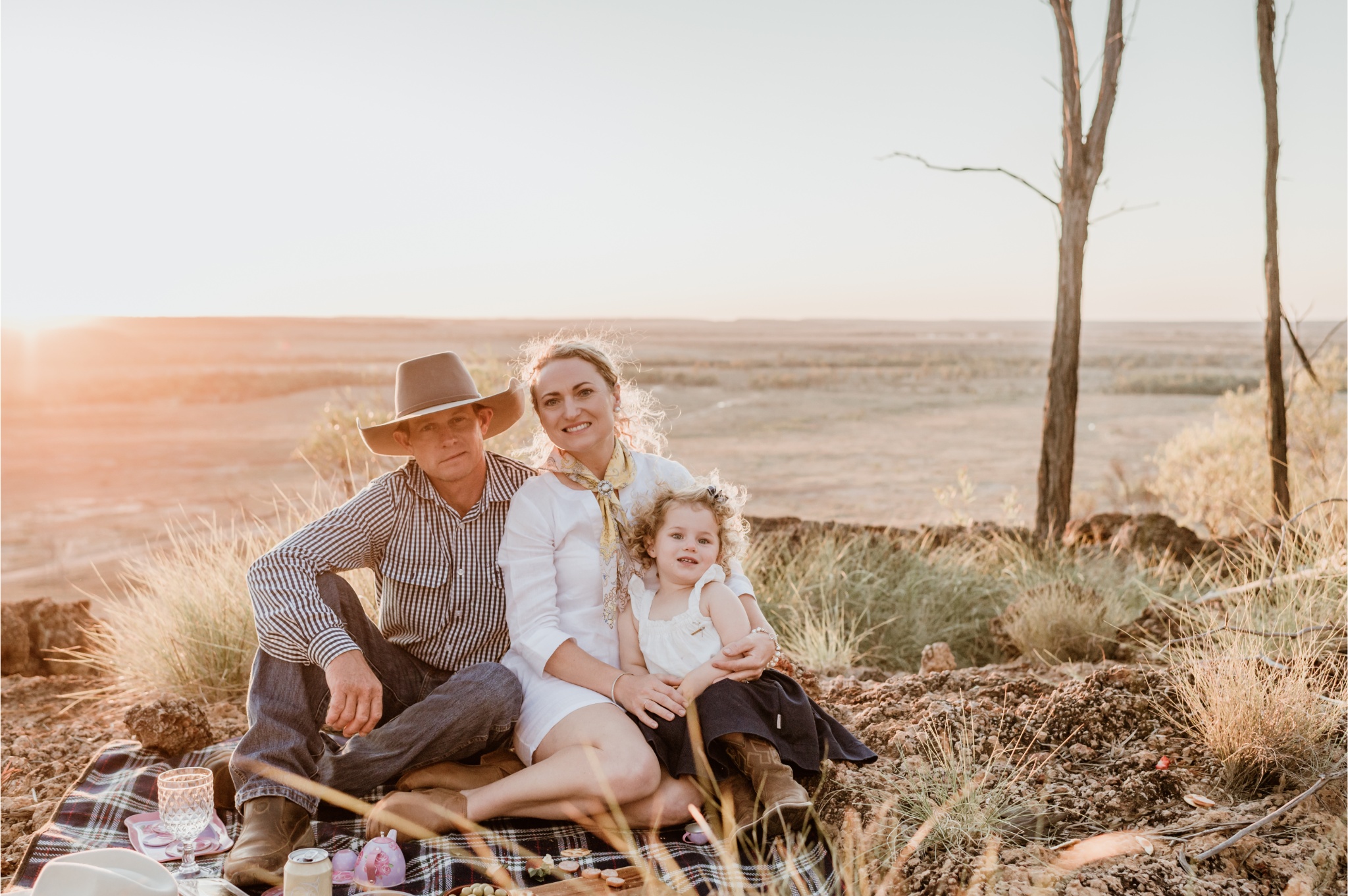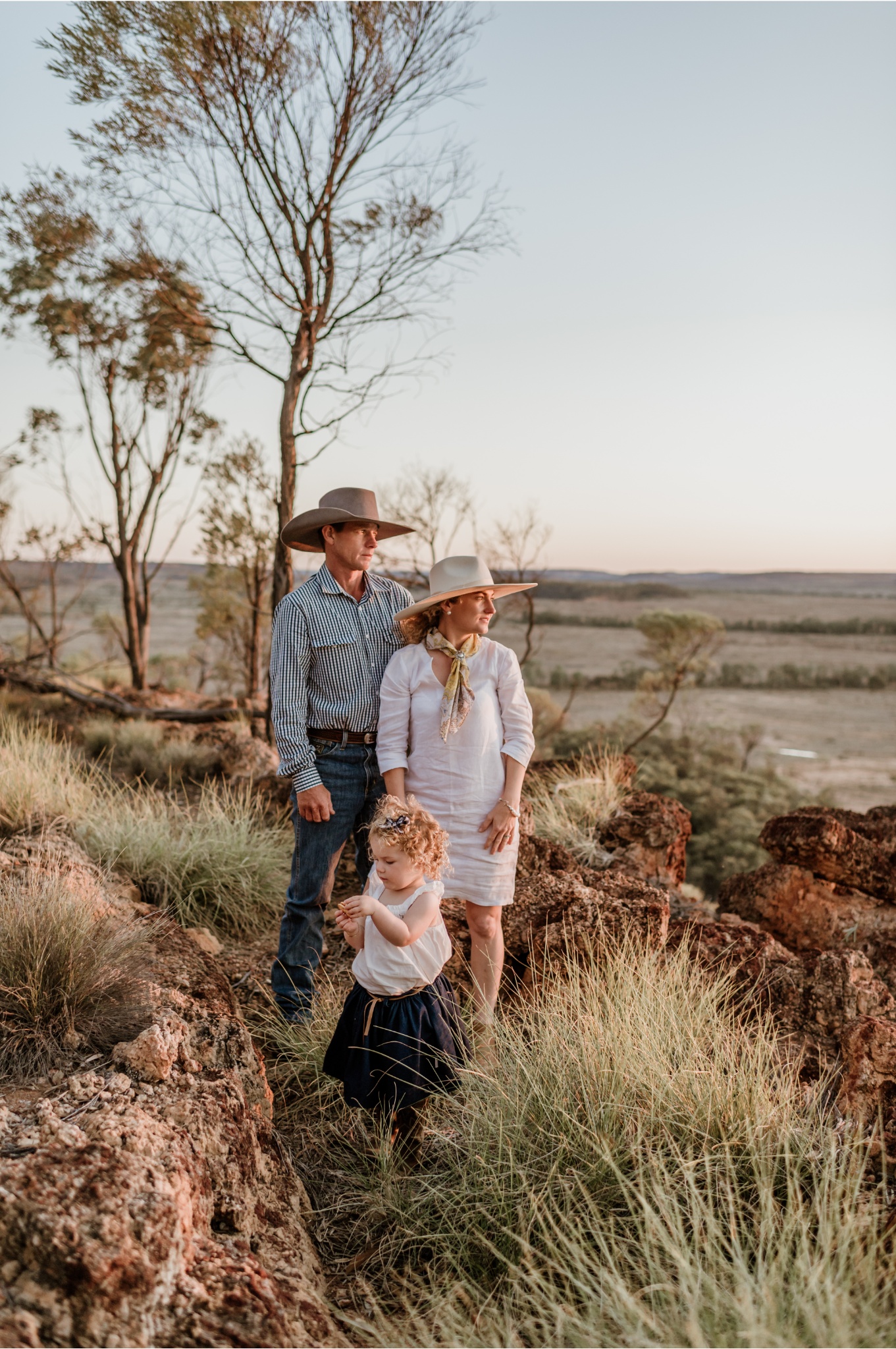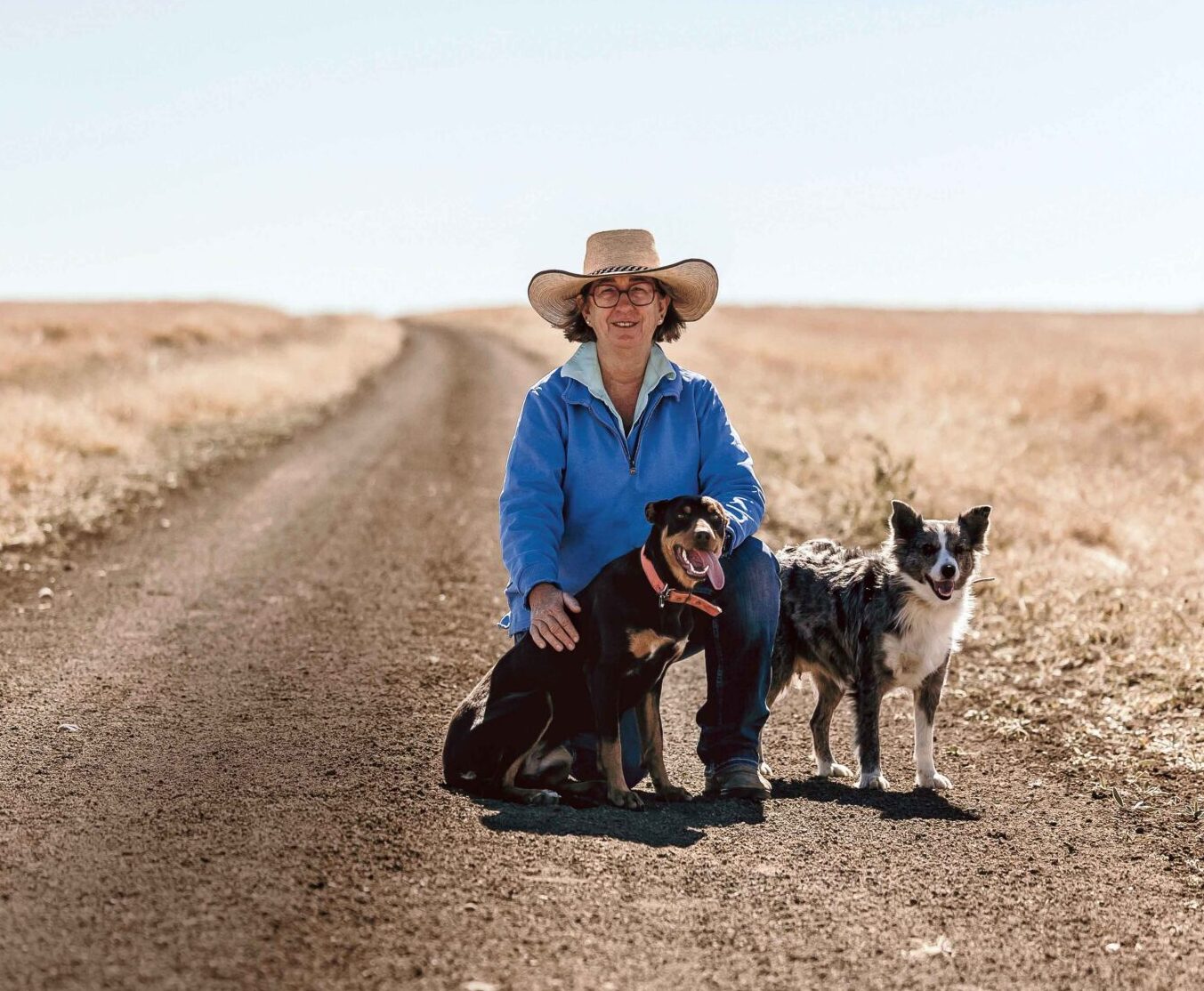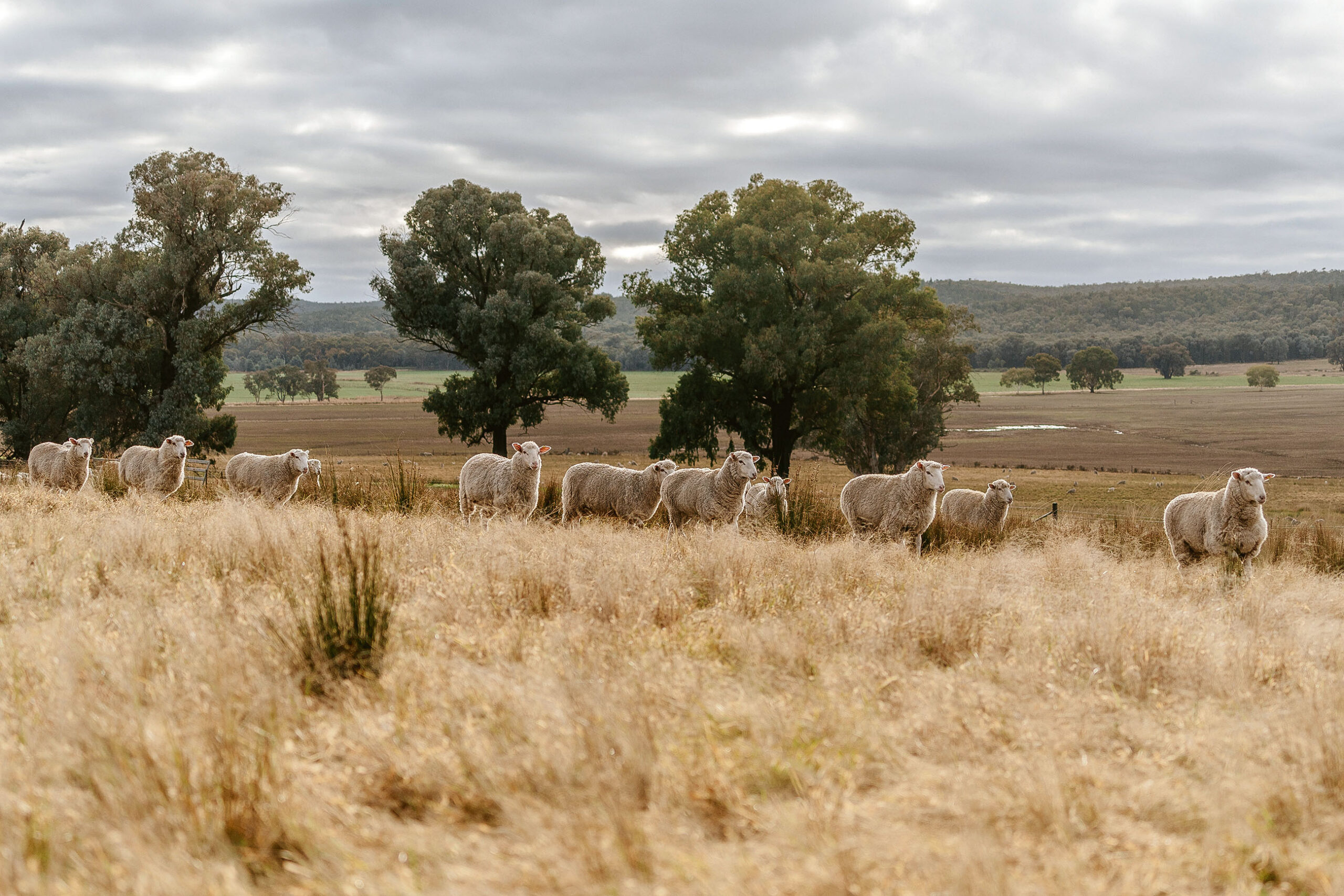Photography Henrietta Attard
Sign up to our mailing list for the best stories delivered to your inbox.
She now trains people how to respond to emergencies on their property and those nearby.
Photography Henrietta Attard Words Jayne Cuddihy

Photography Henrietta Attard

Photography Henrietta Attard
An epiphany is memorable: that tiny moment when the chaos in your head clears and a shaft of clarity breaks through, often resulting in change or a brilliant idea.
Rural nurse Vicki Revett had one of those extraordinary moments on a hot January night in the western Queensland town of Alpha. She had just returned home from the devastating experience of witnessing the death of a close family friend. She and her colleague had tried desperately to save his life, but their attempts failed and Vicki felt a terrible, gut-wrenching combination of guilt and grief. On her return from the remote property, her mother met her at their front gate and enveloped her in a huge hug. There were no words.
This was Vicki’s greatest fear about returning to work in the area where she grew up: having to nurse someone she cared about who was hurt.
“Why did it have to be me?” Vicki asked her mother.
“Because he wouldn’t have wanted anyone else,” was the reply. “Sometimes the only dignity you can give to a dying person is by being the person they know.”
Her mum’s sage advice was a catalyst for change. Although Vicki took some time to recover from this experience, it was the idea of giving people dignity and being a familiar face at a terrible time that struck a chord.
For years Vicki had resisted coming back to Alpha. She had left the district of her childhood to study in Rockhampton and had carved out a successful career in emergency medicine, thriving in this high-pressure, yet rewarding, work environment.
When drought hit her family’s cattle property, however, Vicki cut her hours at the hospital so she could regularly travel home to help. She also began working with the Royal Flying Doctor Service. And it was during one of the service’s Men’s Rural Health Clinics, held 100 kilometres outside Alpha, that she met her future husband, Andrew — the outback equivalent of the ‘boy next door’.
After months of driving the thousand-kilometre round trip for weekend visits, Andrew’s persistent nagging to find a job closer to home paid off and Vicki accepted the position as Nurse Unit Manager at the Alpha Hospital. One of the roles of her new position meant that she, along with a volunteer ambulance driver, was the first responder to emergency callouts.

Photography Henrietta Attard

Photography Henrietta Attard
“Eighty per cent of callouts are property-related accidents. I knew it would be difficult and I worked hard to mentally
prepare myself, while gaining additional qualifications to ‘set myself up’ with an advanced skill set because I knew there was a high possibility I would be responding to people I knew or loved. I wanted to be able to do everything that I could to make a difference — to better the outcome,” says Vicki.
And then she was called to a car accident.
On arrival, Vicki’s nursing instincts kicked in; she could see the trauma laid out in front of her, she could hear their screams for help. She grabbed her kit bags and started to move down the slope to where the car was resting, but suddenly found herself yanked back to the road by the ambulance driver.
“It’s not safe,” he said.
Vicki was dumbfounded. Their obvious role was to help those in need and she couldn’t understand the hesitation. He patiently pointed out that the car was perilously perched — 12 metres down the slope — and what that meant. The minutes they waited for the fire brigade to arrive seemed to stretch for hours. Scaffolding to the car was erected, they secured the vehicle to prevent it slipping and disconnected the battery to make a safer work environment.
Vicki then spent six hours stabilising the driver of the car while crews worked to cut her out. The driver survived.
It was not until her own adrenaline started wearing off that Vicki managed to take stock of the whole situation, including the many mini-traumas within the accident. Until she was back at the hospital, she didn’t realise that her back and neck were bleeding with hundreds of small cuts from broken glass. But despite this, there was another moment of clarity.
“I could see and hear it was an emergency and I desperately wanted to help, but I didn’t realise the danger until it was pointed out to me. And it caught me off guard, because I knew it: that information was in my training. It turns out the body can completely desensitise when it needs to do a job,” she explains. “Ninety-three per cent of first-aid cases in the bush are helping someone you know and it’s near impossible to recognise the dangers when you respond.” Vicki was starting to become aware of the need to train other people to respond accurately and safely in an emergency.
By now happily married, Vicki and Andrew were managing Rainmore station, a 21,100 hectare cattle property 90 kilometres south of Alpha, and they had a gorgeous baby, Lacey, to occupy their time. Vicki relished her home life: helping on the property, cooking intricate meals, pottering in the garden and long camping weekends. But bubbling under the surface was the need to do more, to help others stay safe and well.
“Growing up on the land, I can’t ever remember my parents, neighbours or even friends ever doing a first-aid course, despite the fact that we work in one of the most high-risk industries,” says Vicki. “To a degree, I think that has continued, perhaps because we’re so distracted doing everything else; there’s always mustering, fencing and all those other jobs that come with being on the land.”
So, in 2017, Vicki launched her business, Impulse Training, a nationally recognised first-aid course targeted to the rural sector. She also builds bespoke first-aid kits specifically tailored for rural first aid: MediSwags can be stowed on the back of quad bikes, in buggies or under the seat of an R22 helicopter.
Since starting her business, she and Andrew have recently returned home to manage Vicki’s 7200 hectare family property, Avonmore station, 50 kilometres south of Alpha. At 33 years of age, she’s also studying for her pilot’s licence to make her ‘on site’ medical training sessions even more accessible — she prides herself on delivering the courses literally in the backyard, or paddock, of her clients all over Australia.
But the most remarkable transformation is her attitude towards being a medical professional in her hometown. She relishes nursing someone today, knowing she’ll probably run into them at the races tomorrow.
“Outside of the four walls of the hospital I don’t remember the reason they came in,” she says. “I had a patient say to me the other day, ‘Oh Vicki, I really wish you could unsee that!’ I laughed, because I will never associate the incident with them again.”
There are frustrations, one of which is that despite all her hard work people still die, sometimes needlessly. We all have to learn to accept that death is a part of life, but Vicki Revett has found a purpose in doing her best to ensure that the end doesn’t come sooner than it should for people in the bush.
For more information, visit impulsetraining.net.au
Subscribe to Graziher and never miss an issue of your favourite magazine! Already a subscriber? You can gift a subscription to someone special in your life.
To hear more extraordinary stories about women living in rural and regional Australia, listen to our podcast Life on the Land on Apple Podcasts, Spotify and all major podcast platforms.

In her youth, she struggled to find her place. Now, Louise Martin knows exactly where she needs to be: in Tambo, Queensland, making sure rural children get the education they deserve.

Writer and photographer Alexandra MacAlpine finds ways to hold onto moments of peace amid the busyness of station life.